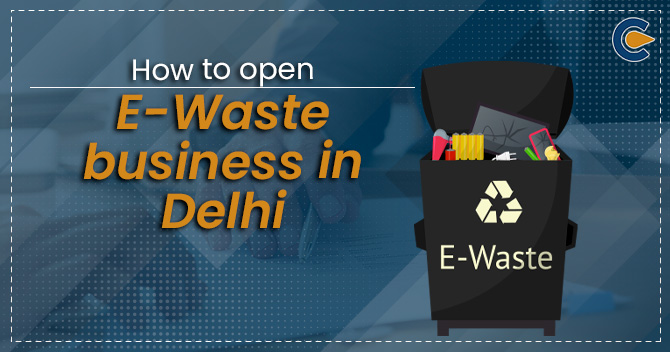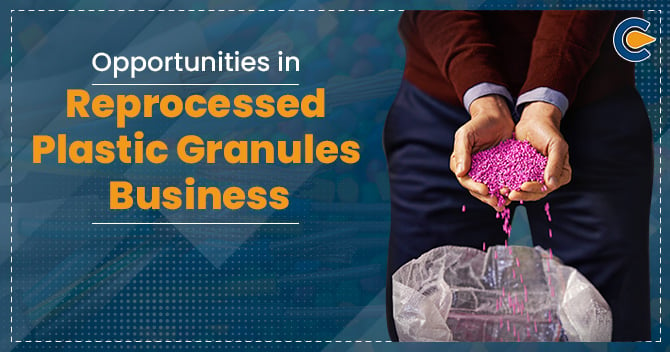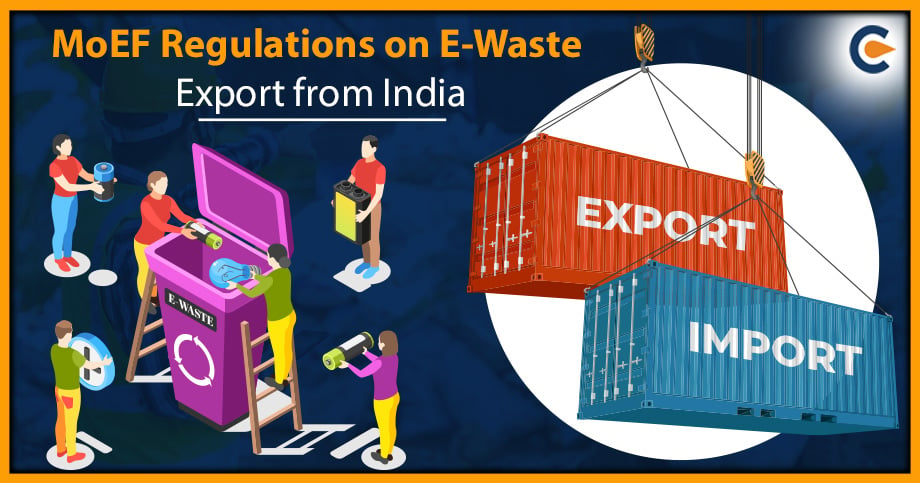E-waste has been an environmental concern worldwide. This problem was turned into business opportunities, and many such businesses have flourished around e-waste management after the E-waste (Management) Rules, 2016, made PIBOs responsible for fulfilling their Extended Producer Responsibility (EPR). Such business came in various forms- from collectors to aggregators and dismantlers to recyclers. E-waste businesses in megacities like Delhi have grown significantly over the past few years. This network ranges from small e-waste scrap collectors, dealers and refurbishers to big PROs. As per Delhi Pollution Control Committee (DPCC) estimates, there are about 40 dismantlers in the NCR, with 4 in Delhi. For refurbishers, this number is just 3. There are around authorised 43 collection centres (under EPR) in Delhi.
Types of E-waste Businesses in Delhi
The focus of e-waste recycling in Delhi is Electrical and Electronic Equipment (EEE) waste. As per the E-Waste (Management) Rules, 2016 the manufacturer/ importer and refurbishers of electronic and electrical products have been given the responsibility to control E-waste by the products after the expiry of their lifetime. DPCC gives consent to operate for only collection, segregation and storage and refurbishing of e-waste. As per a recent study, Delhi NCR generated 85,000 metric tonnes (MT) of e-waste in 2018. This was expected to go up to 150,000 metric tonnes (MT) by 2020, according to Assocham. This shows a vast opportunity in the e-waste business (collection dismantling and refurbishing of e-waste) in Delhi. Following are the types of e-waste businesses in Delhi.
Collection, segregation and storage of E-waste in Delhi
The collection of e-waste is still done mainly by the informal sector as everyday consumers of the EEE prefer selling the e-scrap at the convenience of their homes rather than dropping it at the collection centres. An initiative was recently started by SDMC and NDMC where consumers can submit an online request to collect e-waste from their homes and get paid. Private companies are engaged for the purpose. Establishing a collection network, creating collection depots and consolidation points and maintaining a dynamic price list according to the market demand and value of the waste under the same business can cover the entire process and make the operation cheaper and more efficient.
Storage of e-waste also demands fulfilment of certain legal compliances and obligations as per the E-Waste management rules, 2016. The stakeholders in the E-waste processing business can store e-waste for not more than 180 days. If the waste needs to be stored explicitly for the development of a process for its recycling or reuse, this time can be extended to 365 days.
Note: Waste Electrical and Electronic Equipment’s Collection, Segregation and Storage (without Dismantling and Recycling) is categorised in the white category of Industries and are not required to obtain the Consent to Establish / Operate under the Air & Water Acts. They only need to submit an undertaking to DPCC in online mode and send a signed copy of the undertaking within 30 days of starting its operation to DPCC.
Dismantling of e-waste in Delhi
Dismantling is a part of e-waste recycling that involves a person or an organisation disassembling used electrical and electronic equipment into its components. Any dismantling operation without authorisation from DPCC will be considered as causing environmental damage and attract penal provisions as per the Environment (Protection) Act, 1986. Dismantler can apply for Authorization in Form- IV and then obtain consent to establish (CTE) and consent to operate (CTO) in Green Category under the Water Act, 1974 and the Air Act, 1981[1].
Refurbishing of e-waste in Delhi
The E-Waste (Management) Rules 2016 defines a refurbisher as any company or undertaking registered under the Factories Act, 1948 or the Companies Act, 1956 engaged in the refurbishment of used electrical and electronic equipment to extend its working life for its originally intended use and selling the same in the market or returning to the owner.
Refurbishers can apply for authorisation by DPCC under E-Waste (Management) Rules, 2016 and also has to obtain consent to establish (CTE) and consent to operate (CTO) in the Green category under the Water Act, 1974 and the Air Act, 1981.
Steps in opening an E-waste Business
Exhaustive market research, procuring space for setting up the unit and installing proper machinery and pollution control means are the obvious challenges for setting up an e-waste business in Delhi. Financing and planning are other essential requirements that will be needed all of which can be managed by the owner. But the legal components of establishing an e-waste business in Delhi can be challenging as the procedure for authorisation, consent and timely renewal may require advice and guidance from the experts in this field. The following process must be followed to open an E-waste business in Delhi.
Authorisation by DPCC to run E-Waste Business in Delhi
List of documents to be submitted while applying for authorisation under E-Waste (Management) Rules, 2016 are
- Aadhar Card
- Pan Card
- C.A Certificate
- MSME Certificate
- TIN/ GST Certificate
- Layout Plan
- Project Report
- Electricity Bill
- Copy of Agreement with registered recycler/ dismantler
- Copy of valid Authorization with registered recycler/ dismantler
- Copy of Consent to Establish.
Obtaining Consent to Establish by DPCC.
Consent to Establish: The DPCC issues Consent to establish (CTE) and documents requirements for this NOC is:
- Duly filled application.
- Consent Fee
- Undertaking signed by the applicant
- Project Report (with details of the unit, number of workers, manufacturing process details and flow chart, details of water consumption and discharge etc.)
- Layout Plan
- Documents establishing proof of Possession
- PAN card
- Authorisation Letter in Original
Consent to Operate NOC
After Obtaining the CTE, an application for Consent to Operate (CTO) has to be made. Documents required for CTO are
- Duly filled Application Form
- Consent Fee
- Undertaking signed by the owner
- Certificate from Chartered Accountant
- Manufacturing Process in detail with flow chart
- List of raw materials used, products manufactured and the maximum quantity of by-products generated daily.
- Noise effluent and Stack monitoring reports
- CETP membership proof
- Copy of Electricity and water bill
- PAN Card
- Authorisation letter (except in case of individual proprietary concern).
- Proof of date of establishment before 07.02.2007 if the unit falls in the industrial area earmarked for redevelopment under MPD 2021.
- Documents supporting conformity with the provisions of Master Plan of Delhi.
Renewal of CTO
Renewal shall be granted for ten years in the case of Green category of Industries. DPCC, through in June 2021, has notified that the renewal of consent to operate (CTO) for green category units will be auto renewed after self-certification, undertaking and submission of consent fee to facilitate the process under ease of doing business.
Conclusion
E-waste is one of the fastest-growing waste streams globally and India generates more than two million tonnes of this waste annually. According to a recent government report, 95% of e-waste in India is recycled by the informal sector and scrap dealers unscientifically dispose of it by burning or dissolving it in acids. Delhi NCR region has been a significant contributor to e-waste with a population of more than two crores. 2018, a study estimated that Delhi generates around 2 million metric tonnes of e-waste annually, of which 90-95% reaches the landfills or informal recyclers who break them in the open — both a severe environmental risk. About 5,000 e-waste processing units are functioning in Delhi in the informal sector where manual and rudimentary techniques are being implemented— dismantling or recovering hazardous substances by hammering, open burning or acid leaching. Recently all these activities are stringently monitored and a push is being given to create a formal and regularised e-waste business network.
Read our Article:How to become Producer Responsibility Organization?











